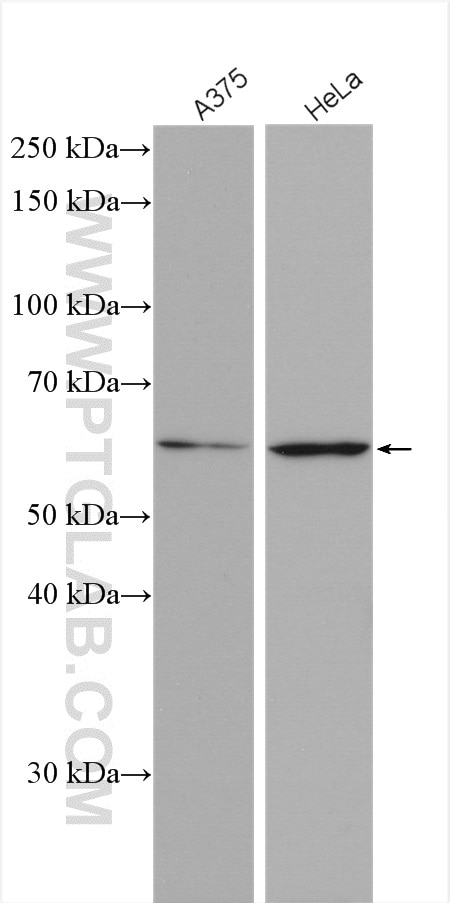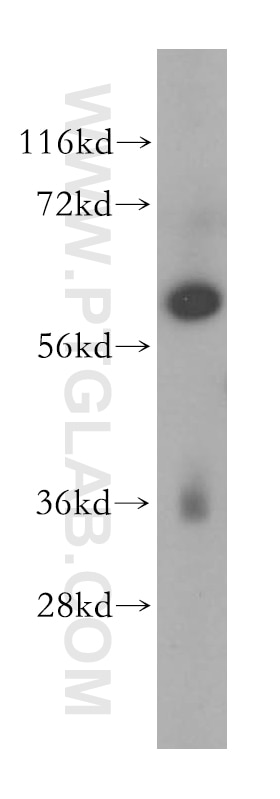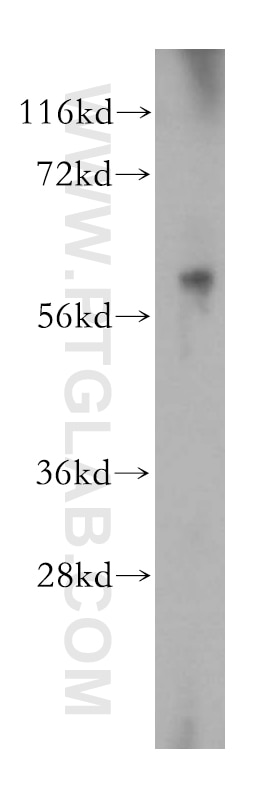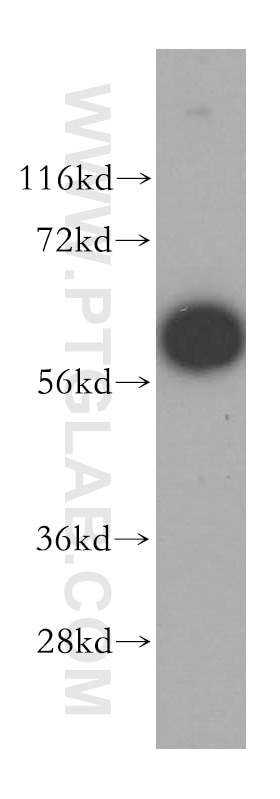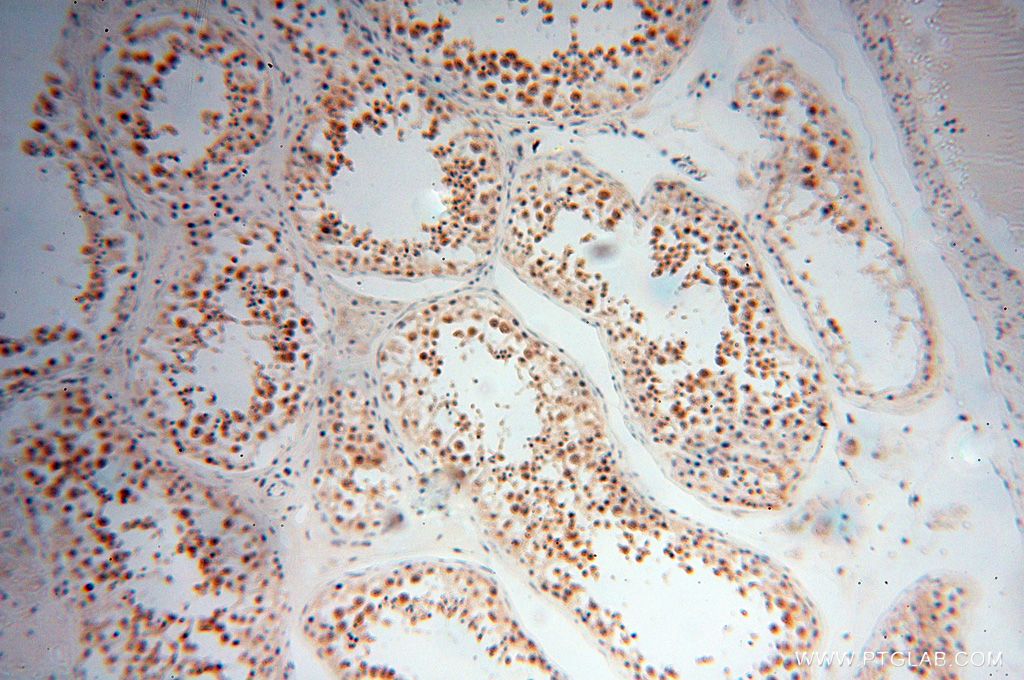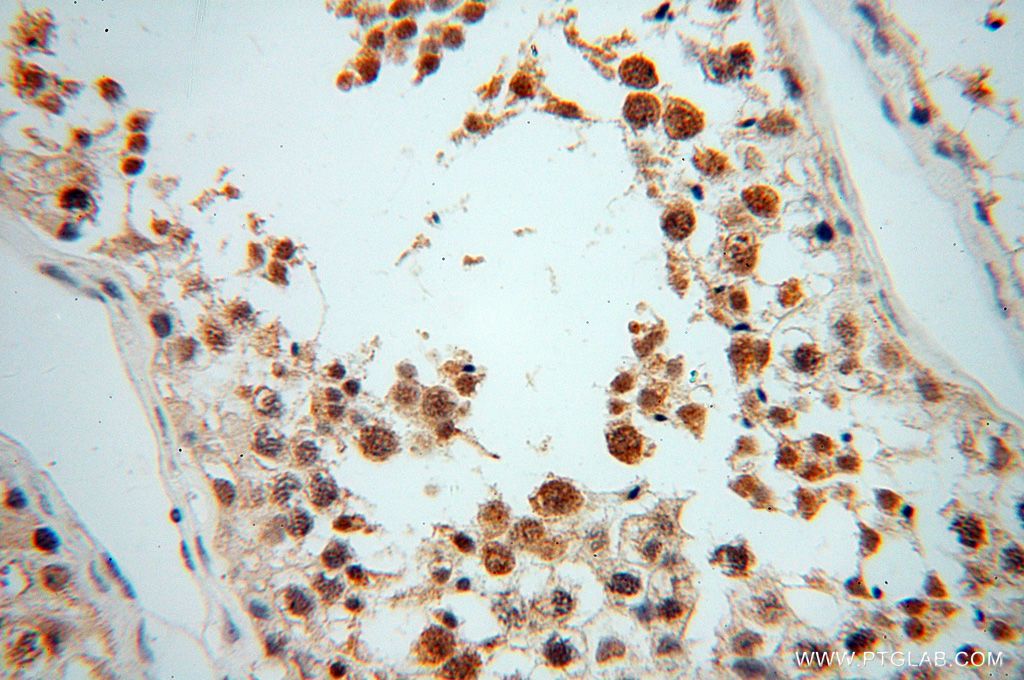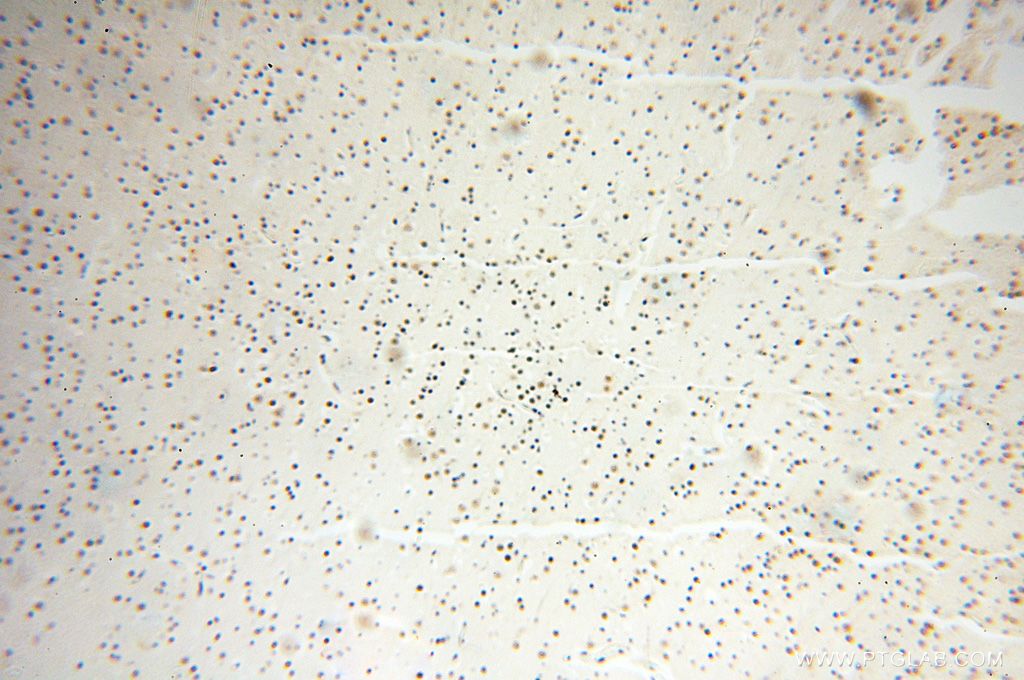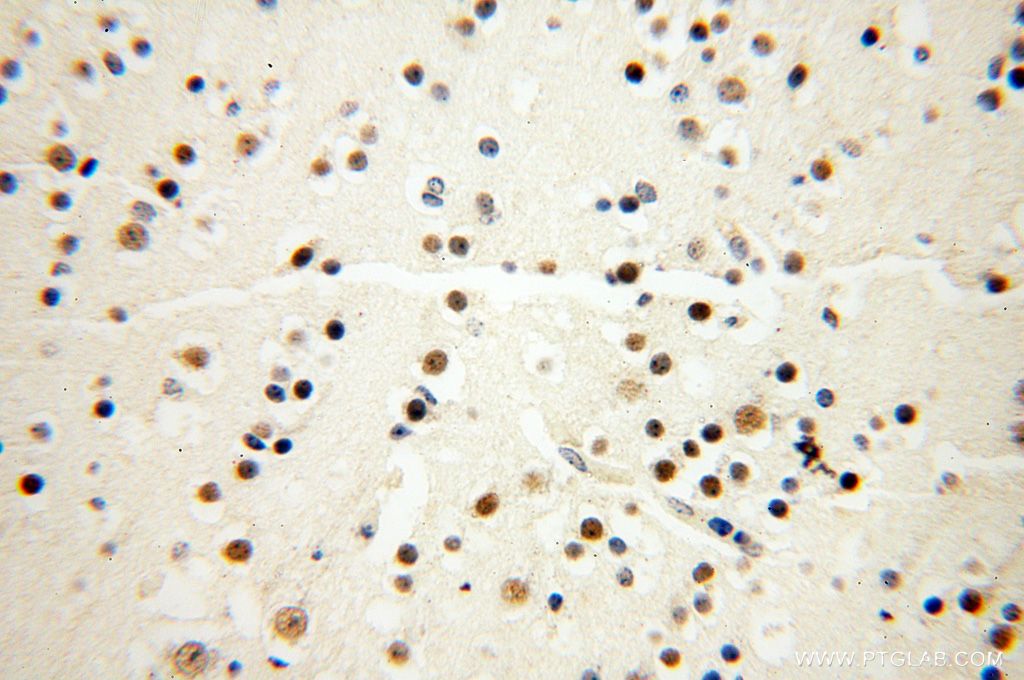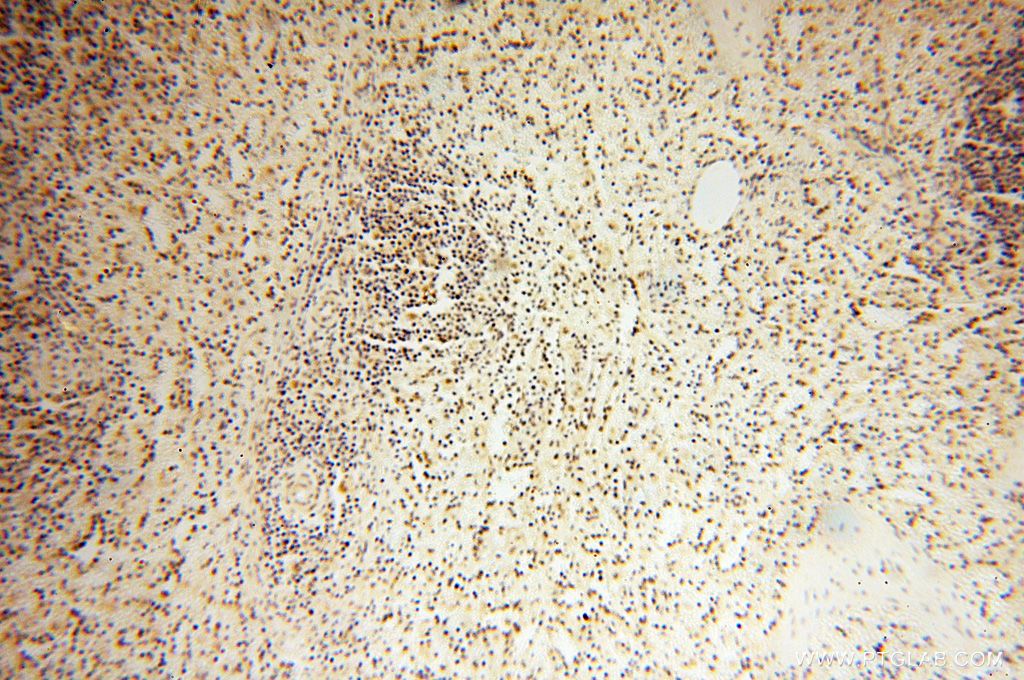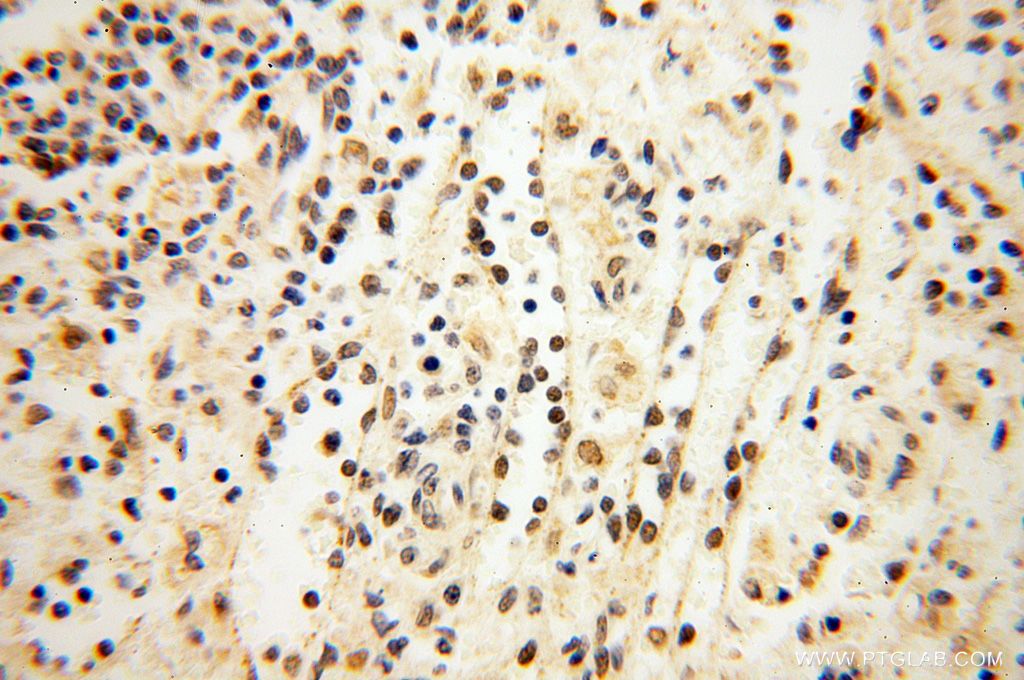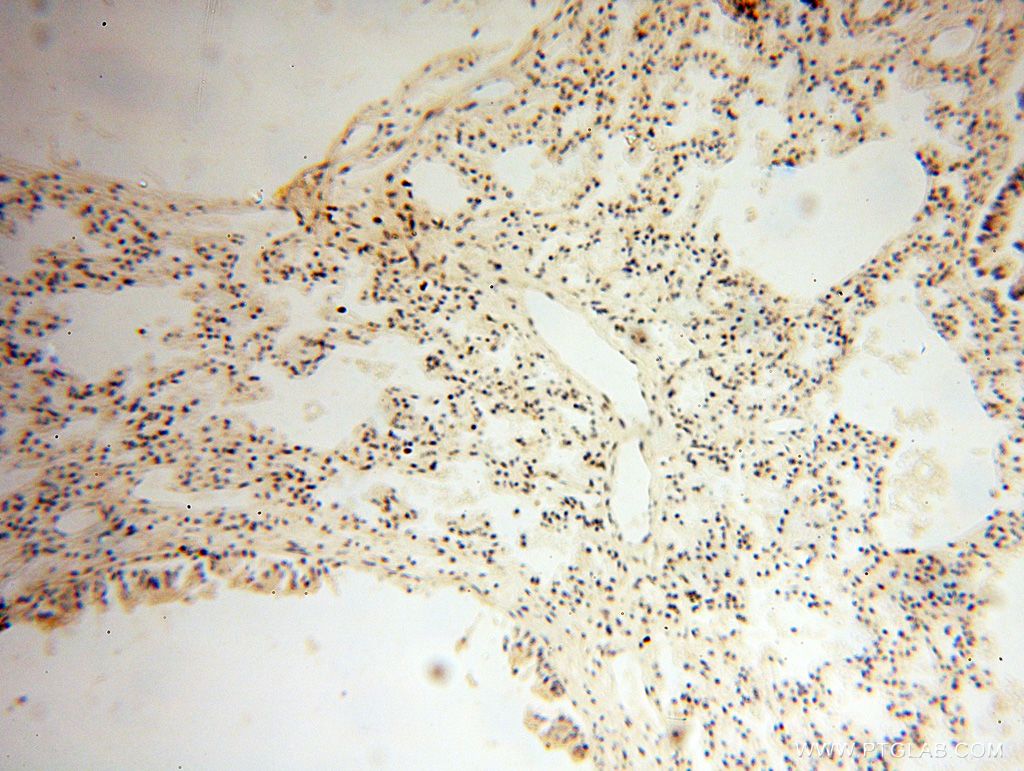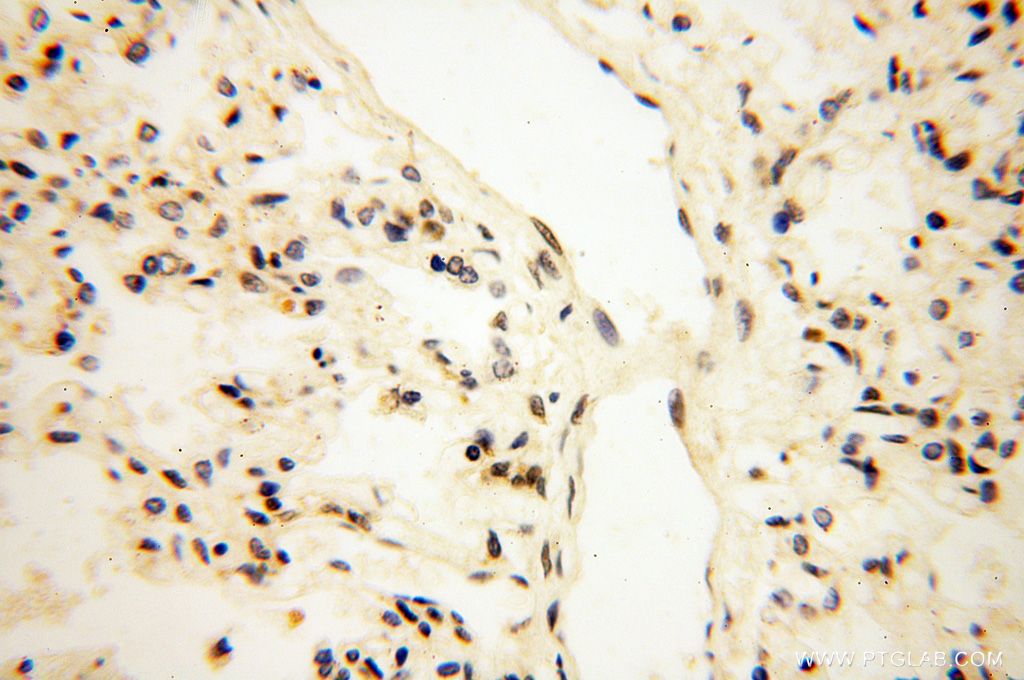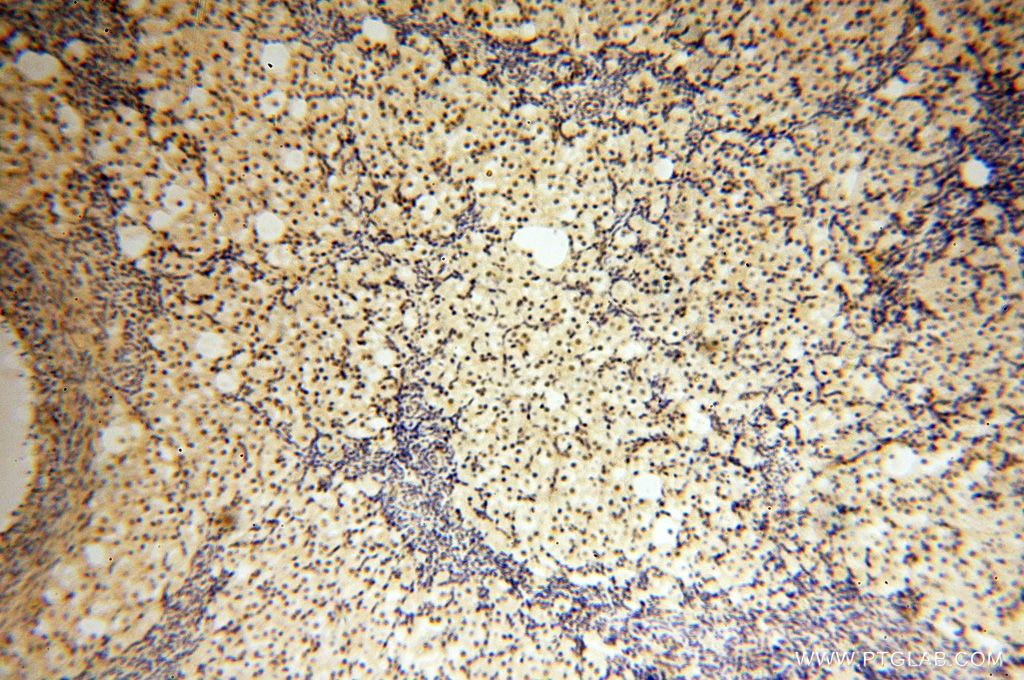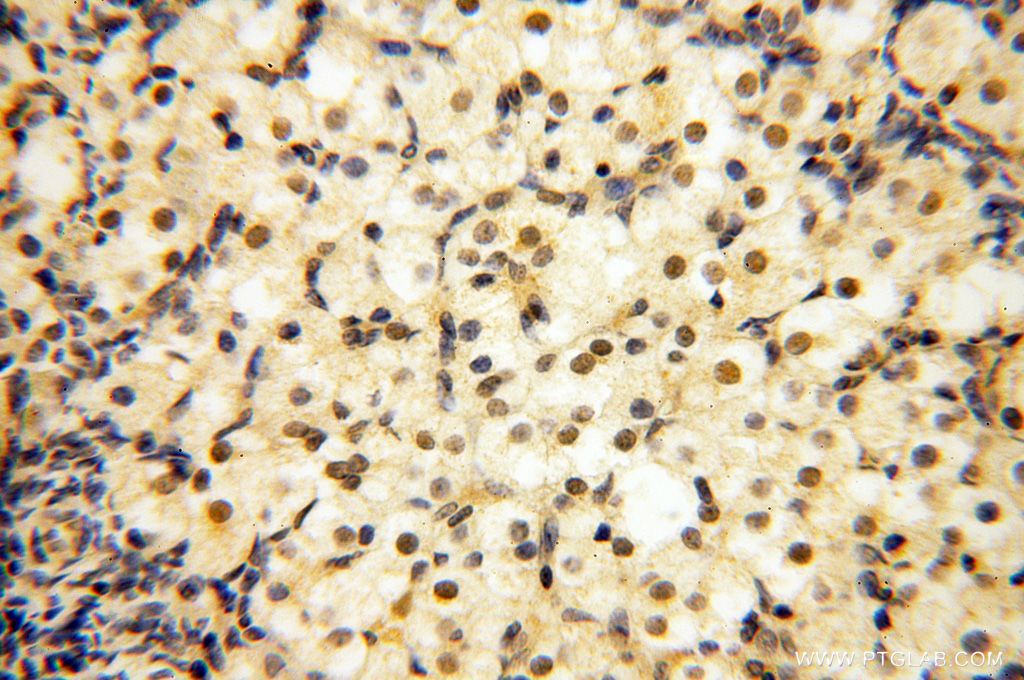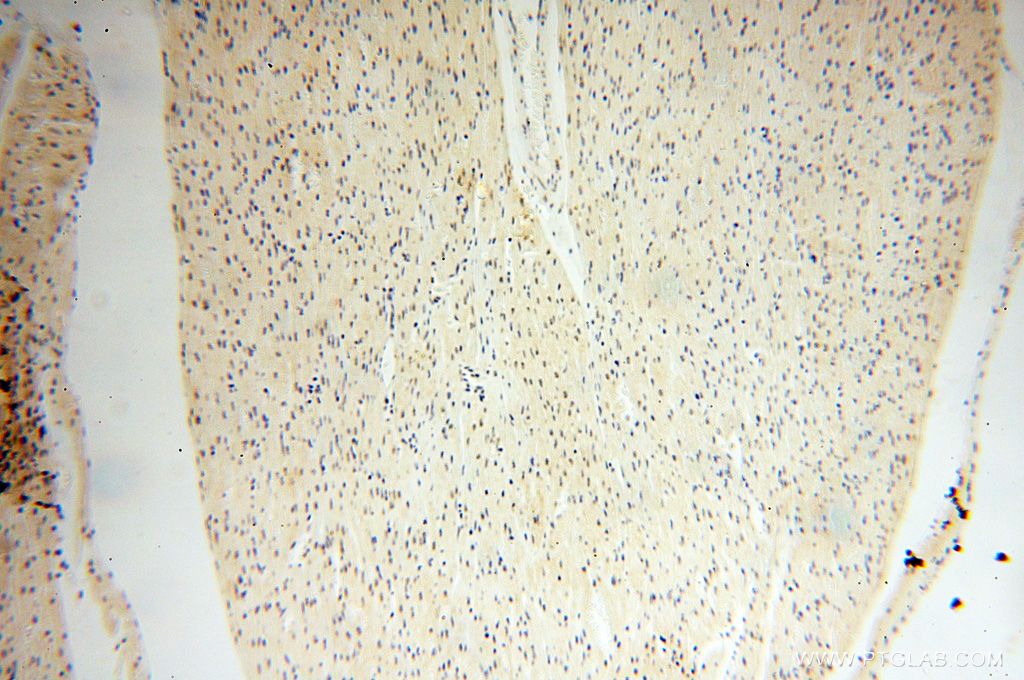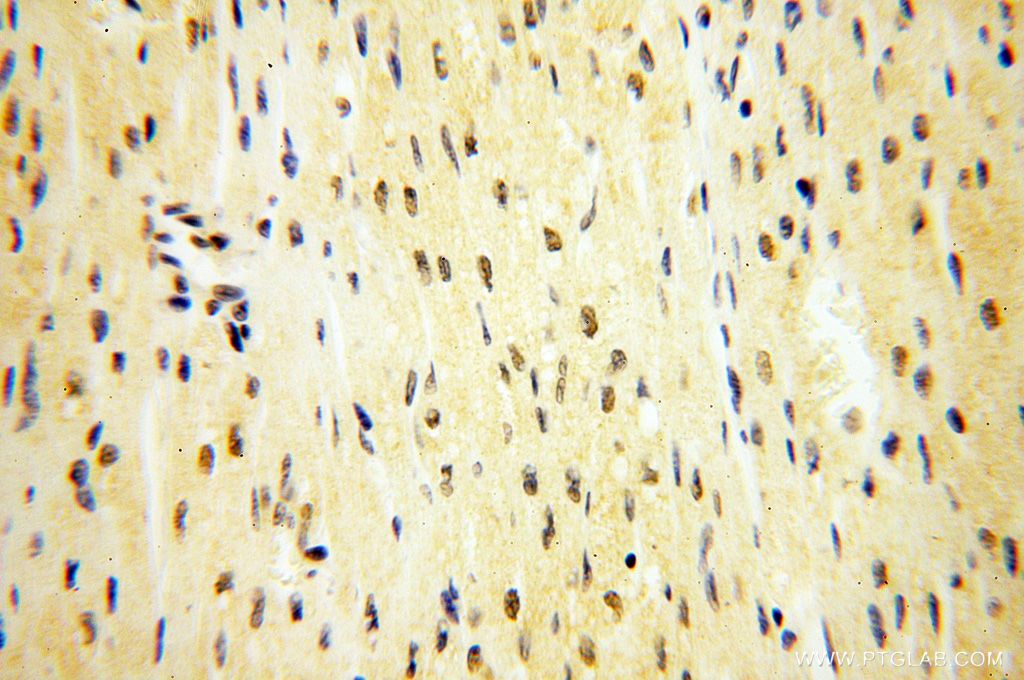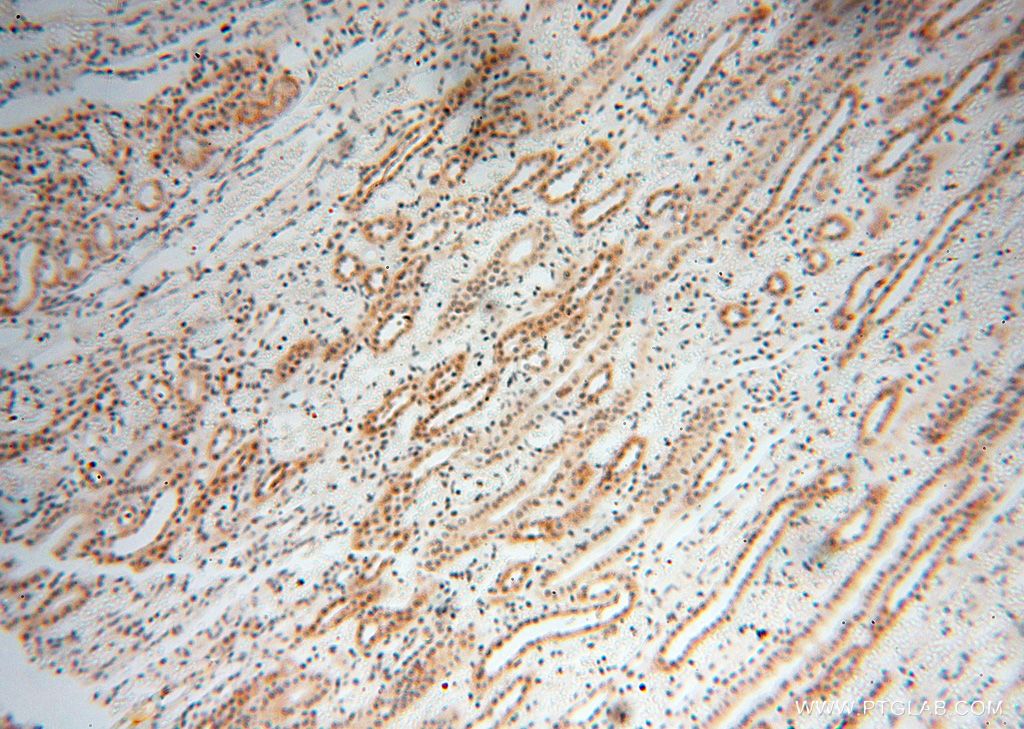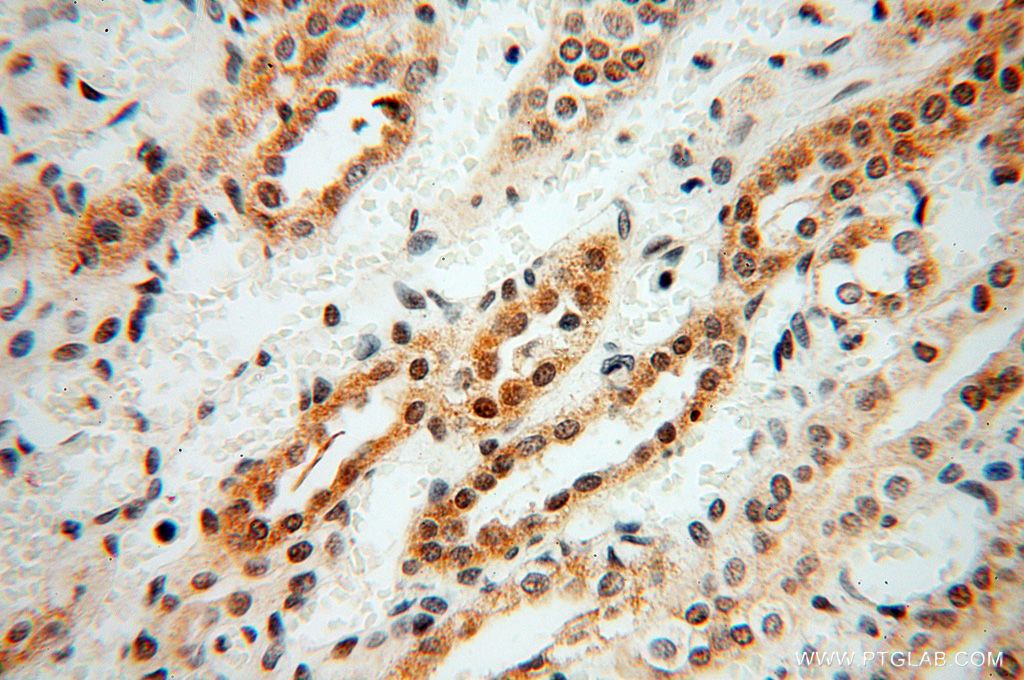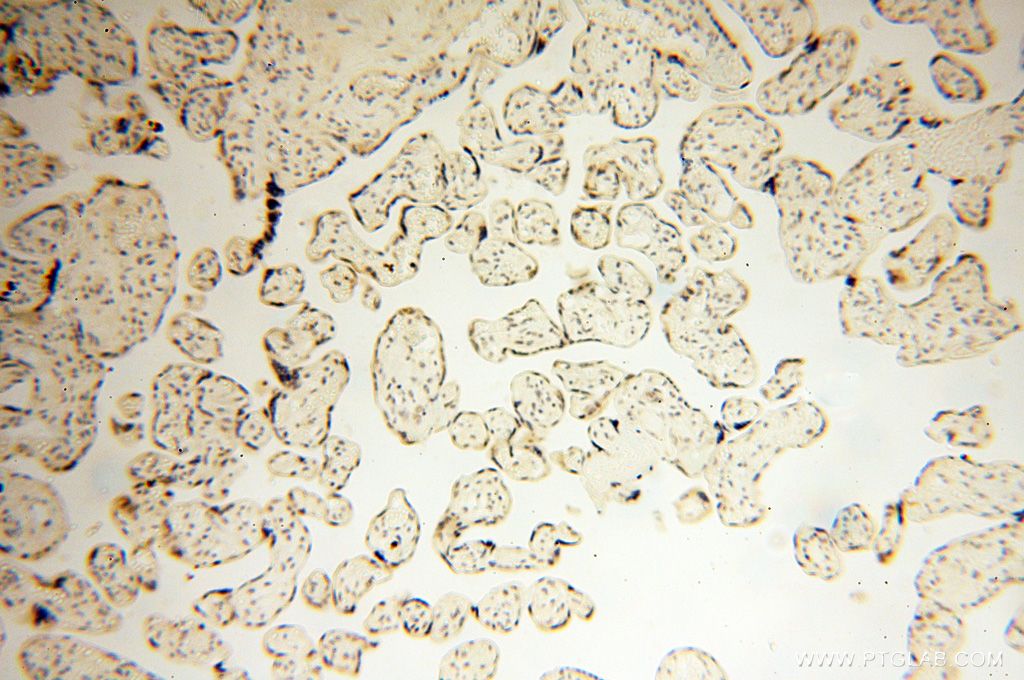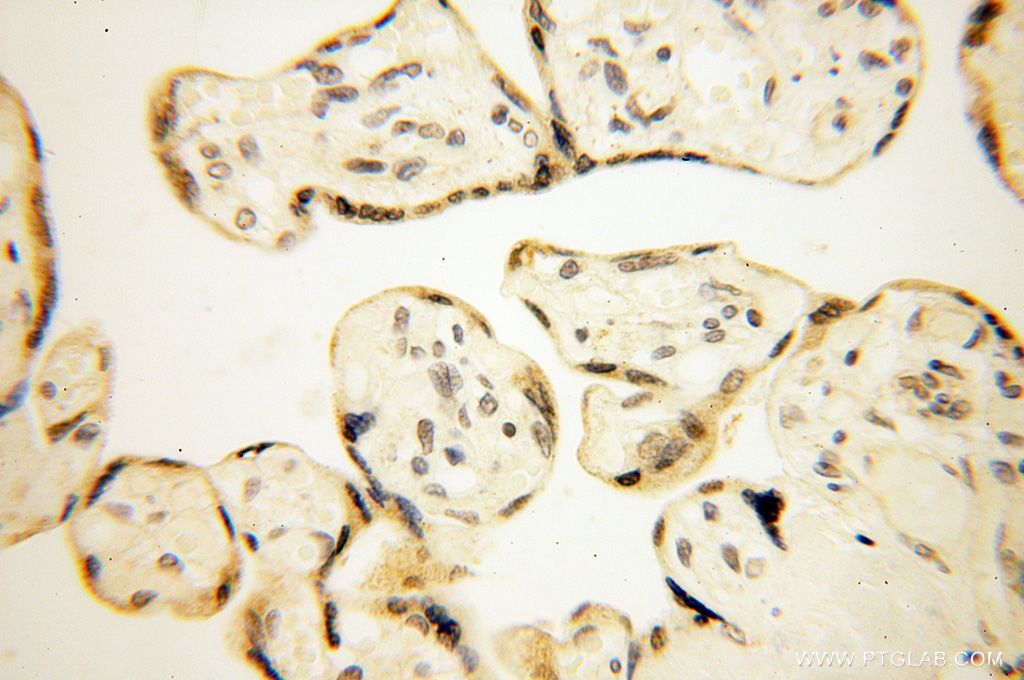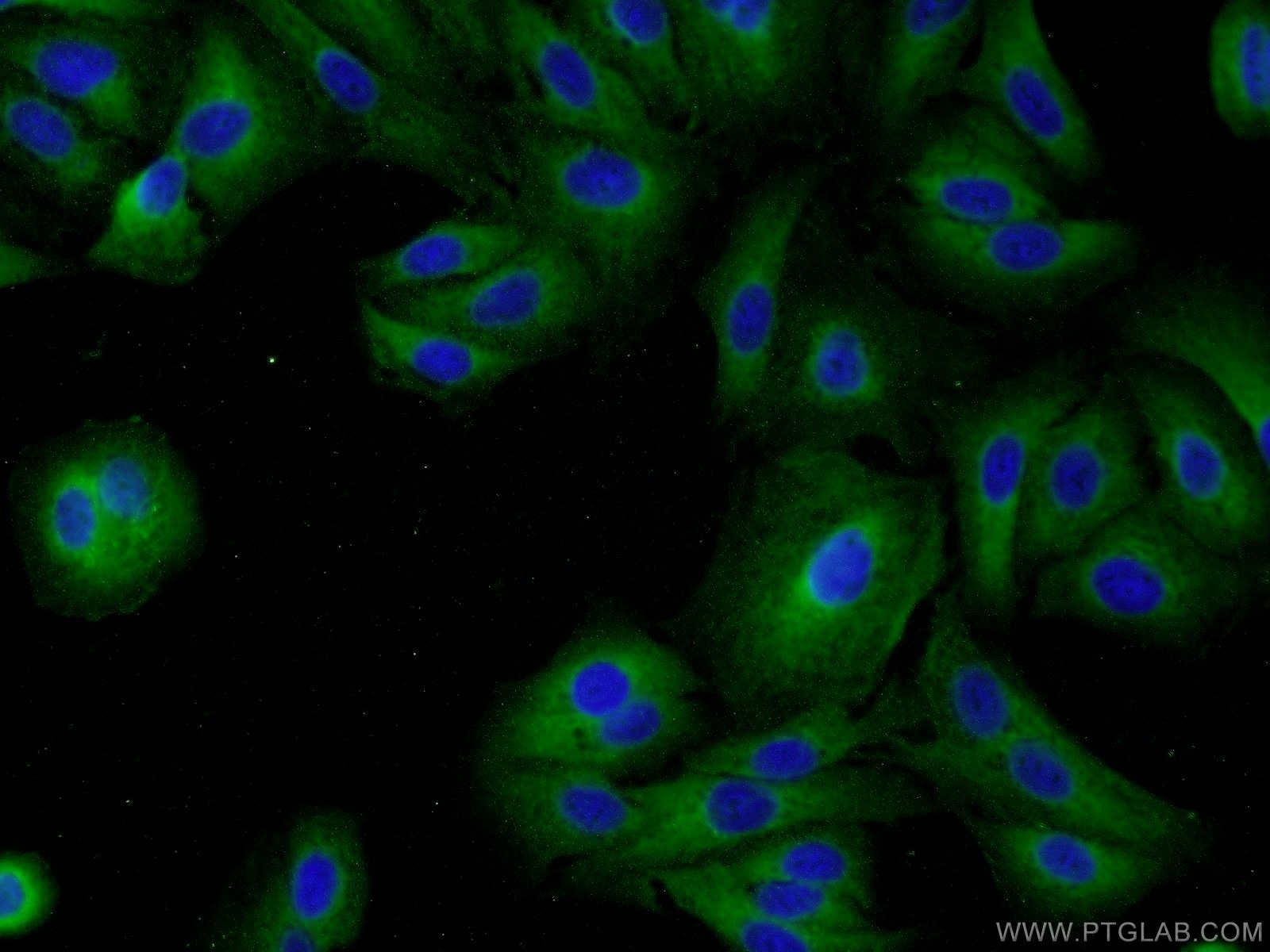Tested Applications
| Positive WB detected in | A375 cells, HeLa cells, A549 cells, MCF-7 cells |
| Positive IHC detected in | human testis tissue, human brain tissue, human heart tissue, human kidney tissue, human lung tissue, human ovary tissue, human placenta tissue, human spleen tissue Note: suggested antigen retrieval with TE buffer pH 9.0; (*) Alternatively, antigen retrieval may be performed with citrate buffer pH 6.0 |
| Positive IF/ICC detected in | A549 cells |
Recommended dilution
| Application | Dilution |
|---|---|
| Western Blot (WB) | WB : 1:1000-1:3000 |
| Immunohistochemistry (IHC) | IHC : 1:20-1:200 |
| Immunofluorescence (IF)/ICC | IF/ICC : 1:20-1:200 |
| It is recommended that this reagent should be titrated in each testing system to obtain optimal results. | |
| Sample-dependent, Check data in validation data gallery. | |
Product Information
17494-1-AP targets MAGEB18 in WB, IHC, IF/ICC, ELISA applications and shows reactivity with human samples.
| Tested Reactivity | human |
| Host / Isotype | Rabbit / IgG |
| Class | Polyclonal |
| Type | Antibody |
| Immunogen |
CatNo: Ag11624 Product name: Recombinant human MAGEB18 protein Source: e coli.-derived, PET28a Tag: 6*His Domain: 1-343 aa of BC029525 Sequence: MPRGQKSKLRAREKRHQARCENQDLGATQATVAEGESPSSAYLLFGDRPQNLPAAETPSIPEALQGAPSTTNAIAPVSCSSNEGASSQDEKSLGSSREAEGWKEDPLNKKVVSLVHFLLQKYETKEPITKGDMIKFVIRKDKCHFNEILKRASEHMELALGVDLKEVDPIRHYYAFFSKLDLTYDETTSDEEKIPKTGLLMIALGVIFLNGNRAPEEAVWEIMNMMGVYADRKHFLYGDPRKVMTKDLVQLKYLEYQQVPNSDPPRYEFLWGPRAHAETSKMKVLEFVAKIHDTVPSAFPSCYEEALRDEEQRTQARAAARAHTAAMANARSRTTSSSFSHAK Predict reactive species |
| Full Name | melanoma antigen family B, 18 |
| Calculated Molecular Weight | 343 aa, 39 kDa |
| Observed Molecular Weight | 55-60 kDa |
| GenBank Accession Number | BC029525 |
| Gene Symbol | MAGEB18 |
| Gene ID (NCBI) | 286514 |
| RRID | AB_2138404 |
| Conjugate | Unconjugated |
| Form | Liquid |
| Purification Method | Antigen affinity purification |
| UNIPROT ID | Q96M61 |
| Storage Buffer | PBS with 0.02% sodium azide and 50% glycerol, pH 7.3. |
| Storage Conditions | Store at -20°C. Stable for one year after shipment. Aliquoting is unnecessary for -20oC storage. 20ul sizes contain 0.1% BSA. |
Protocols
| Product Specific Protocols | |
|---|---|
| IF protocol for MAGEB18 antibody 17494-1-AP | Download protocol |
| IHC protocol for MAGEB18 antibody 17494-1-AP | Download protocol |
| WB protocol for MAGEB18 antibody 17494-1-AP | Download protocol |
| Standard Protocols | |
|---|---|
| Click here to view our Standard Protocols |

